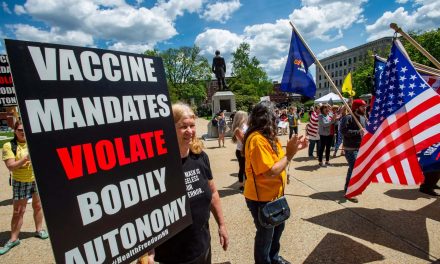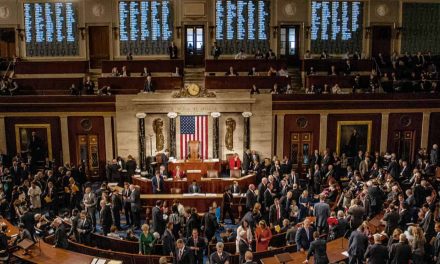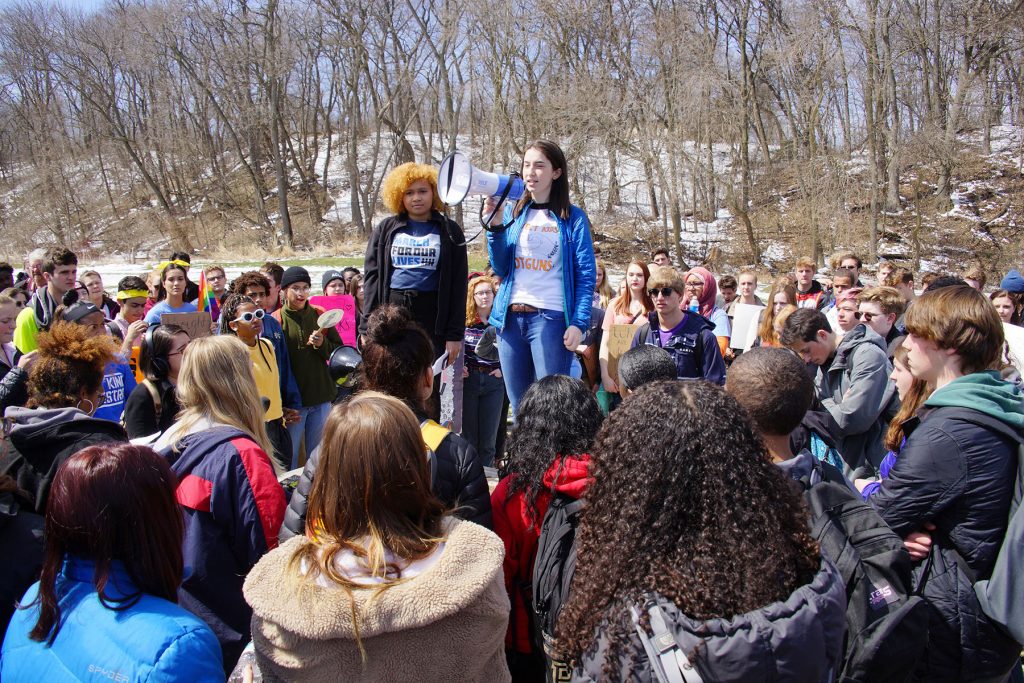
If he is to stay in power, Trump needs to repeat his victory in Wisconsin. But the landscape is very different now – and support is shrinking.
Donald Trump claimed to have done so much for African Americans that his campaign decided to open the first ever Republican office in a black neighborhood of Milwaukee.
The office on Martin Luther King drive was decorated with “Black Voters for Trump” signs, and launched with fanfare in February in an attempt to win enough African American votes to repeat the president’s razor-thin victory in Wisconsin four years ago, which was crucial to winning the White House. Two weeks later, the windows were daubed with paint and “scum” scrawled across the door.
Not long after that, the coronavirus pandemic shut down campaigning. Now the office is back up and running, but in a very different electoral landscape from the one that existed in February. COVID-19 has shattered the illusion that Trump could take significant numbers of African American votes following his hostility to the Black Lives Matter movement in the wake of George Floyd’s killing. Trump’s mishandling of the pandemic – which has had a disproportionate impact on communities of color – has also been a factor.
Outside his apartment a block from the Trump campaign office, Cleophus Lobley acknowledged that he helped elect the president in 2016 by not voting. The African American truck driver said the events of the past few months mean he won’t make that mistake again.
“Damn right I’m not happy with Trump. To me, he’s really a very prejudiced person. He’s been bad for the black community,” said Lobley. “I’m not just talking about COVID and George Floyd, but that made things worse. That’s the kind of president he is. I decided I would vote this time because of him. Maybe my vote might count. I don’t know anyone around here who will vote for him.”
Lobley was among 40,000 people in Milwaukee who voted for Barack Obama but failed to turn out for Hillary Clinton in 2016, including a significant proportion from black neighbourhoods. Their absence was more than enough to give victory to Trump in Wisconsin. He won the state by just 23,000 votes – a margin of victory of 0.77% – giving him a crucial part of the electoral college puzzle that put him into the White House.
If he is to stay in power, the president almost certainly needs to repeat that victory while also winning Michigan and Pennsylvania, two other states he took by tiny margins. Wisconsin Republicans suffered stinging setbacks with the loss of the governor’s office in 2018, and in April they lost a key seat on the state supreme court alongside a failed attempt to purge the voting roll of 200,000 people before November’s election.
The scale of the Jill Karofsky’s victory in the supreme court race over a sitting justice who was strongly backed by Trump, and the fact of a high turnout despite long lines because so many polling places were closed by coronavirus, gave Democrats reason to hope that their supporters are more engaged with politics than four years ago. This would be bad news for the president.
“He’s got a tougher road here than he had in March”
A survey of Wisconsin voters by Marquette law school in Milwaukee gave the Democratic candidate, Joe Biden, an eight-point lead over the president in June, a five-point increase on a month earlier. The survey showed rising disapproval in the state for Trump’s job performance, linked to his handling of coronavirus but also the Black Lives Matter protests. More than half said Trump has got it wrong in dealing with COVID-19. Just 30% of voters approved of his response to the killing of Floyd and the demands for police reform.
Even on his strongest issue, the economy, Trump’s approval rating fell four points to 50%. Crucially, opposition has grown among independents who were instrumental in delivering Wisconsin to him four years ago. Disapproval of Trump’s leadership among independent voters in the state surged from 36% to 57% between May and June.
Charles Franklin, director of the Marquette poll, said that “intense negativity” is to the Democrats’ advantage if it motivates people to vote.
“Trump’s in trouble. He’s got a tougher road here – a considerably tougher road than he was facing back in March, when it looked like a very tight race. There seem to be cracks in the nearly unanimous Republican support and a loss of independent support,” he said.
It is a picture found in traveling across Wisconsin over the last week, from its main cities to the rural wilds of the north of the state where Trump did so well four years ago. Republican activists there are increasingly concerned at eroding support for the president and what they see as his lack of a coherent strategy or policies to regain it, particularly on key issues such as healthcare, which has taken on added resonance in the middle of the pandemic.
Some county party chairs privately wonder if Trump has already given up hope of re-election because, they say, he continues to repeat the divisive behavior that has damaged his presidency, as well as taking highly controversial decisions such as commuting Roger Stone’s prison sentence. Franklin said he had been particularly surprised by the president’s low polling over Black Lives Matter.
“To the extent that Trump’s reaction to the protest is seen as opposing the valid reasons for the protests, Trump is on the wrong side of public opinion – even here in Wisconsin with our 80-something per cent white population,” he said. “That issue of race and Confederate statues and patriotism, as he sees it, is not playing to a strong suit for him right now.”
The threat to Trump’s grip on the White House comes not only from a resurgence in the Democratic vote, but in the loss of independent and moderate Republican support in Wisconsin. That has been steadily eroding as the president alienates former voters piecemeal with his assaults on the military, the justice system and broader democratic norms.
Democrats still lose in Waukesha county west of Milwaukee, one of three solidly Republican counties around Milwaukee seen as an important test of Trump’s ability to hold on to the support of prosperous college educated voters. But Democratic candidates have taken an increasing share of the ballot in recent elections for the US Senate, governor and state supreme court.
Matt Lowe, the 29 year-old chair of Waukesha’s Democrats, attributes that in part to Republican voters abandoning Trump, but also to a shift in priorities of those Democrats who are not enthusiastic about Biden.
“I think a lot of younger, more progressive voters see this as a referendum on Trump’s whole presidency, not just coronavirus,” he said. “I’m a millennial who is also straight, white, cis, living in a fluid community. I know that if Donald Trump is elected for four more years I will most likely be OK as an individual.
“But I know that my LGBT friends, my friends of color, the friends who are less likely to be as safe in a Trump America, they will not be OK. For a lot of younger voters who may be more idealistic, radical, they see that this is more than their ideology. It’s about protecting those who need them as allies to vote to help protect them. It’s a motivation to vote.”
Still, there are still four months to the election in a year in which events have moved fast. Franklin said the president could win back support if the economy improves over the summer, but warned that Trump’s pushing for the reopening of schools and universities will damage him if it resulted in a surge in coronavirus cases in the run-up to the election.
There is also the question of how the pandemic will affect voting, particularly if many polling stations are closed in the major cities as they were for April’s elections, causing long lines. But some voters waited for hours to cast their ballot, reflecting an apparent determination to counter Trump. More than 60% voted by mail, an option likely to be widely taken up for the presidential election.
Whatever it takes, Lobley is determined to be heard this time, even if he is not hugely enthused by Joe Biden.
“Biden talks good, but he’s trying to get the majority of black people on his side to get the votes. I know what he’s doing,” he said. “But the important thing is to get rid of this president.”
Chrіs McGrеаl
Lee Matz
Originally published on The Guardian as ‘He’s in trouble here’: can Trump win this critical swing state again?
Help deliver the independent journalism that the world needs, make a contribution of support to The Guardian.


















